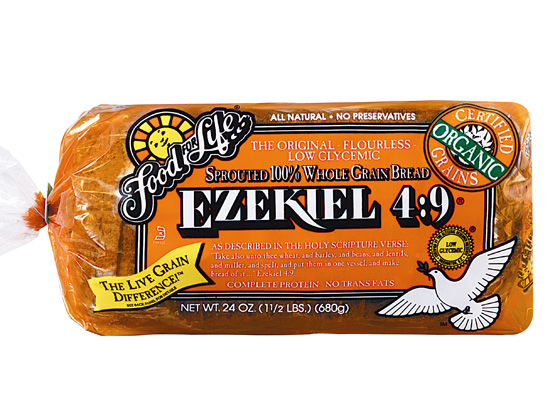Say you have just spent a night out in the city, enjoying downtown, perhaps taking in a show, at the very least dining somewhere, and after dinner you decide to walk the streets and take in some air before heading home. And suppose you turn the corner and pass an alley only to hear the grunt and rustle of a human body, and peering in the dark down the alley you see a man on his side, laying next to what appears to be a model of a city.
As you look closer you realize it isn’t just a model of a city, it’s a model of your city, skyline and all. And more than that this model is surrounded by tanks and artillery and soldiers—it’s a city under siege. Next to him is a small fire on which he cooks what appears to be a loaf of bread, and yet when you smell the fire’s flames, they carry the pang of manure.
Of all the things you might think of this, ranging from curiosity to pity to revulsion, perhaps the last thing you would think is that this man is a prophet of God who speaks the very words of the Lord. In fact, if you could have made out any of his mumblings, and you heard his supposed divine proclamations, then you would be instantly convinced that that he harbored delusions of grandeur and that he needed serious help.
And yet this scene—the model city, the man laying on his side, the food cooked on dung—is the scene of Ezekiel 4. God asked Ezekiel to do all of those things in order to enact the judgement that was about to befall Jerusalem. And Ezekiel did them. So the only way that he isn’t completely insane is if God actually spoke to him. If there isn’t a voice on the other side, then Ezekiel was nothing more than insane, a seeming schizophrenic.
***
When I was in high school, my mom started buying something called Ezekiel Bread. It was the first health food that I ever remember eating and enjoying. And I still enjoy a toasted slice with bananas and honey. But what is interesting about the bread is that it is made from a recipe taken from Ezekiel 4. You can read the verse that contains the recipe right on the bag—“And you, take wheat and barely, beans and lentils, millet and emmer and put them in a single vessel and make your bread from them.” Bread of Life actually makes this bread using this exact recipe. Amazingly enough the bread is actually good, and more amazing than that is that the combination of ingredients forms a complete protein. It is a perfect health food. And you can still find it at Whole Foods today.
What the bag doesn’t tell you is that God first told Ezekiel to cook it over a fire of his own dung, but that after some bartering Ezekiel talked God down to a manure fire instead. I can assure you that the makers of Ezekiel Bread are not literalists when it comes to the bread’s cooking method.
But when I think of Ezekiel Bread as a commodity in light of the scene of the man in the alley, I feel a disconnect. I wonder is that what this text means? Are we supposed to walk a way from reading this disturbing scene with nothing more than a bread recipe? The reason I ask is because this question really gets down to what we believe the Bible is for. If all Ezekiel 4 is good for is a bread recipe, then the text is both manageable and practical. It’s healthy! It’s a complete protein! Isn’t God good? And this plays in to the dominate impulse that we have about living and applying Scripture, namely that it must be practical. That we must seek out the timeless principles of a text and live them.
Now the longing for practicality can be a noble impulse, but it can also be a kind of pragmatic fetish and a veil for taming those Scriptures that confront and offend our sensibilities.
Don’t get me wrong. Seeking principles from Scripture can be a way of honoring the text. After all aren’t we meant to be doers of God’s Word and not just hearers? But what is there to do in this text? What are the principles in Ezekiel 4? Are we called to build replicas of our cities, lay on ours sides, and enact God’s judgement? Moreover, if we are going to go ahead and bake the bread, why not cook it on dung like Ezekiel did? But people who do things like that either live on the streets, in an institution, or are starting cults. Surely, God can’t mean that. So we bake the bread the way we want to and then say thanks for the protein, as if that is all this chapter or this book has to tell us.
Here’s the truth. If this text has a principle at all, then that principle horrifies us, and that principle is this—because God is our maker and our redeemer, there is no limit to what he can demand of us. If there really is a voice on the other side, that if God actually speaks (and speaks still to us through his Word) then what he asks we must not refuse, even if it appears insane. When we read the Scriptures with only practicalities and application in mind, then we can often go hunting for recipes, when God is trying to confront and overwhelm us with the reality of his character and might, with the actuality of his grace and judgement, with the centrality of his voice.


One Reply to “Homeless Dung Bread or Cooking from the Bible! Ezekiel 4”
Comments are closed.